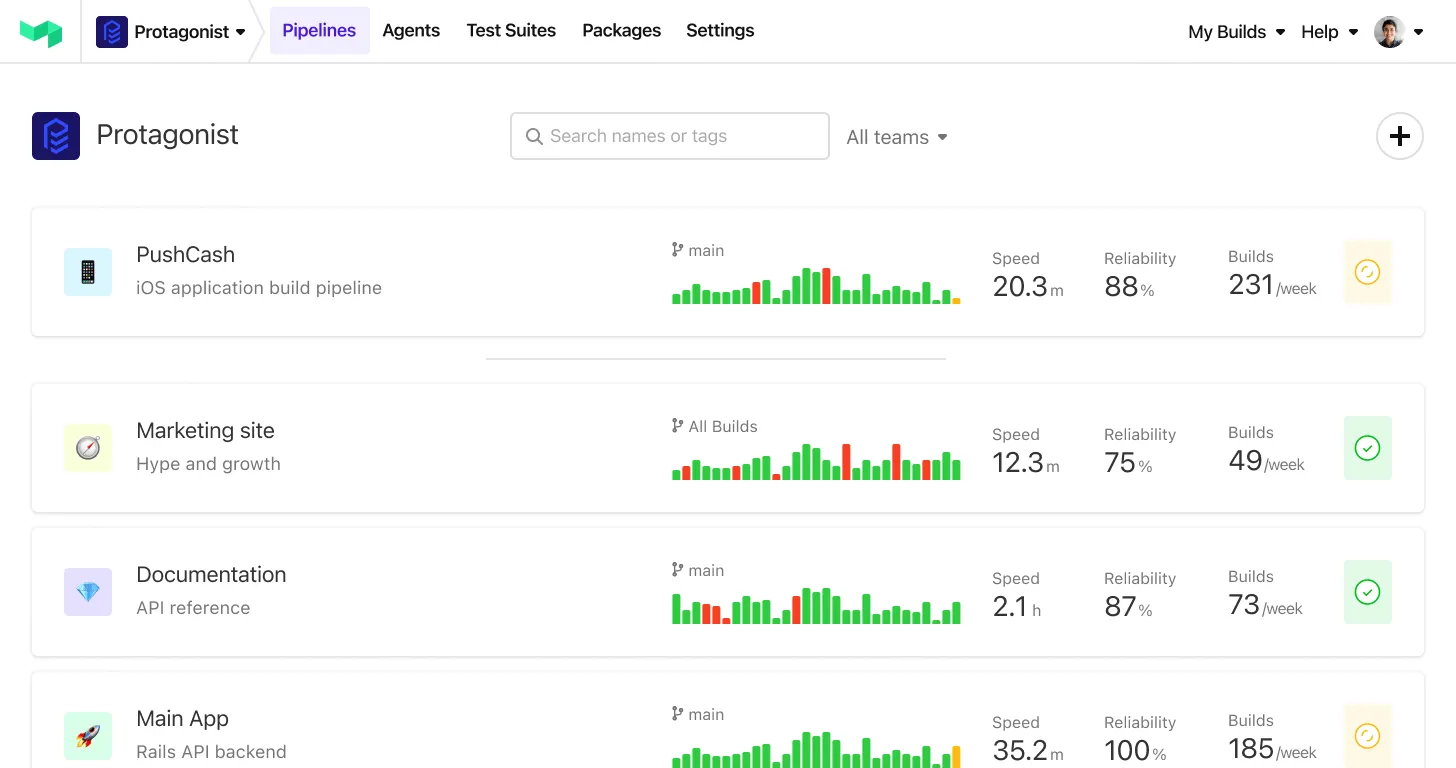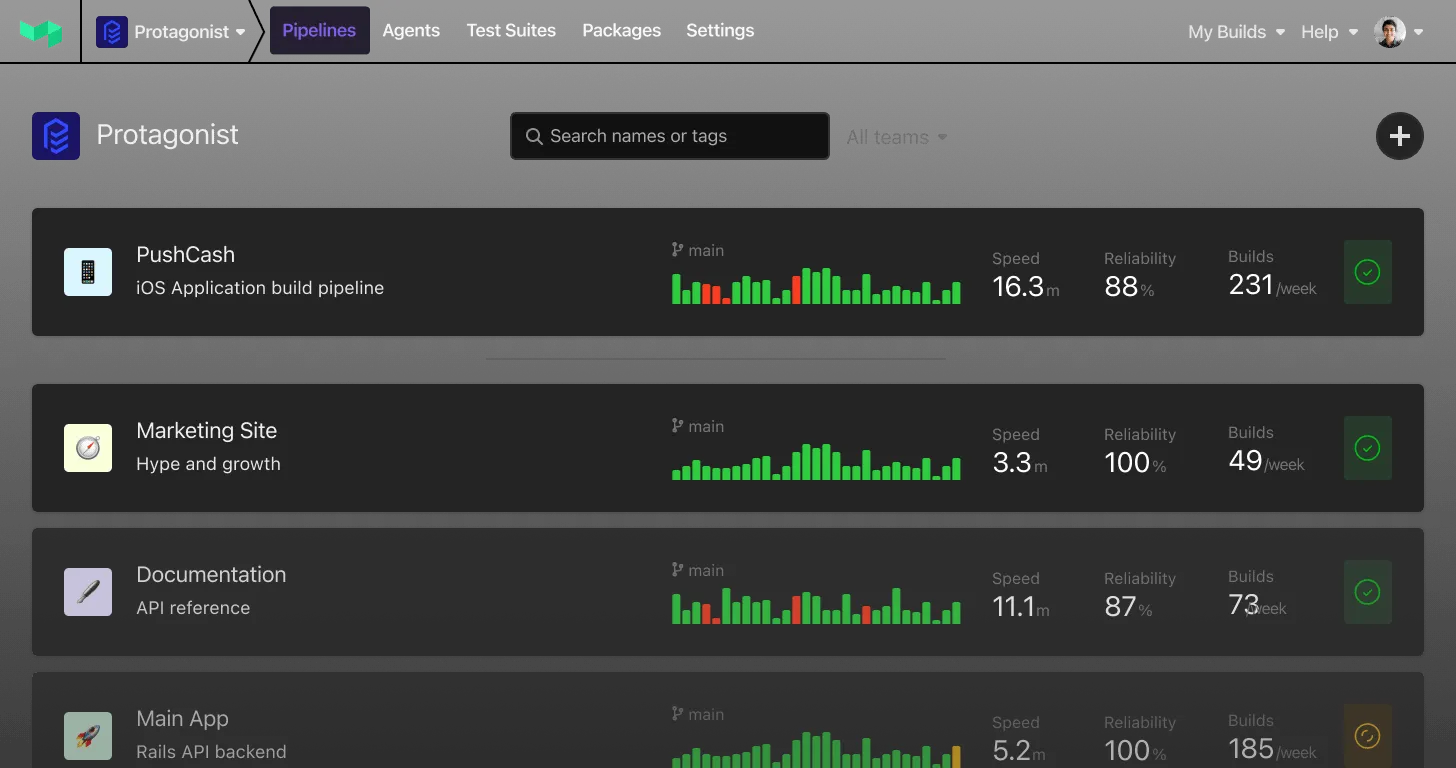Pulumi Buildkite Plugin 
A Buildkite plugin that installs and configures Pulumi.
Examples
By default, the plugin installs the latest version of Pulumi:
steps:
- label: ":pulumi: Preview"
command: pulumi preview --stack production --cwd infra
plugins:
- pulumi#v1.0.0You can install a different version with the version option:
steps:
- label: ":pulumi: Deploy"
command: pulumi up
plugins:
- pulumi#v1.0.0:
version: 3.183.0Authenticating with Pulumi Cloud
If you’re using the Pulumi Cloud backend, you’ll need to authenticate with a Pulumi access token, either by setting a PULUMI_ACCESS_TOKEN environment variable directly or configuring the plugin to obtain and set one for you through OpenID Connect (OIDC).
Buildkite offers many different ways to retrieve and use secrets and environment variables in your pipelines. For an overview of the options, see Managing pipeline secrets in the Buildkite docs.
Using a Buildkite secret
If you’re using Buildkite secrets to store your Pulumi access token, you can fetch and apply the token value as an environment variable using the official Secrets plugin:
steps:
- label: ":pulumi: Deploy"
command: pulumi up
plugins:
- pulumi#v1.0.0
- secrets#v1.0.0:
variables:
PULUMI_ACCESS_TOKEN: your_buildkite_secret_key_nameUsing OpenID Connect (OIDC)
You can also authenticate using short-lived OIDC tokens generated at build-time by the Buildkite Agent. After configuring Pulumi Cloud as an OIDC issuer, you can have the plugin authenticate with Pulumi Cloud using Buildkite’s support for OIDC:
steps:
- label: ":pulumi: Deploy"
command: pulumi up
plugins:
- pulumi#v1.0.0:
use-oidc: true
audience: "urn:pulumi:org:${YOUR_PULUMI_ORG}"
pulumi-token-type: "urn:pulumi:token-type:access_token:personal"
pulumi-token-scope: "user:${YOUR_PULUMI_CLOUD_USERNAME}"Once the issuer in Pulumi is created, the policy editor page will open. Update the settings with the following values:
- Decision:
Allow - Token type: [value is dependent on your Pulumi pricing tier]
- Rules >
audclaim:urn:pulumi:org:{your Pulumi account name}(Pulumi account name can be your individual account or your Pulumi org name that you see in the URL address bar.) - Rules >
subclaim: See the format of the value used by Buildkite tokens: https://buildkite.com/docs/agent/v3/cli-oidc#claims.- If there are parts of
substring that you don’t want to specify a value for, you must use a wildcard char*in its place. For example, if the organization name ismyorgand the pipeline name ismypipeline, asubclaim value oforganization:myorg:pipeline:mypipeline:ref:*:commit:*:step:*would mean that Pulumi would ignore the value ofref,commitandsteptokens.
- If there are parts of
- Add more claims if you would like Pulumi to validate additional claims in the Buildkite ID token.
See the Pulumi Cloud OIDC and Buildkite Agent OIDC docs for additional configuration options and details.
License
MIT (see LICENSE)

